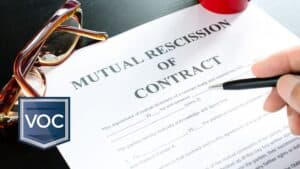Unexpected events can have a profound impact on timeshare owners, creating challenges that make it difficult for them to enjoy and maintain their contracts. These events, whether natural disasters, shifts in legislation, or even global pandemics can significantly alter the experience of timeshare ownership, often leaving owners frustrated and looking for ways to exit their agreements.
Natural Disasters
Weather events such as hurricanes, floods, or wildfires can heavily damage resorts in popular timeshare destinations like Florida or coastal regions. Even when properties are rendered unusable due to storm damage, timeshare companies still require owners to make regular payments, including both mortgage payments and maintenance fees. These unexpected natural disasters may also trigger special assessment fees, which are extra charges imposed on owners to cover repairs to the property. For owners, this can feel like paying for a service they can no longer access, driving many to explore their options for exiting their timeshare contracts.
The COVID-19 Pandemic
The COVID-19 pandemic illustrates a different type of natural disaster that strained timeshare ownership even though there was no physical damage to their timeshare units. For over a year, many resorts closed their doors, leaving owners without access to their properties. Despite these closures, most timeshare companies continued to demand payments from owners. This created widespread dissatisfaction, as owners paid for properties they were unable to use, often with no relief in sight. The pandemic highlighted the rigid structure of many timeshare contracts, where even unprecedented global events do not provide owners with the freedom to adjust or suspend their financial obligations.
Legislative Changes
The timeshare industry is no stranger to lobbying efforts aimed at favoring developers over owners. Many proposed pieces of legislation are designed to benefit timeshare companies, often at the expense of consumers. For example, these laws can allow for unlimited increases in maintenance fees, further burdening owners financially. Additionally, legislation frequently limits the legal recourse available to owners seeking to exit their contracts, tightening restrictions and making it harder to find a viable exit strategy. As a result, owners who feel financially trapped by their timeshare agreements often turn to third-party services for help in navigating the complex legal landscape.
Acquisitions and Ownership Program Changes
When larger companies acquire existing timeshare resorts, they may seek to change ownership programs, pressuring owners to switch from their current contracts to points-based systems. These shifts can come with higher costs and significantly increased maintenance fees, adding to the financial pressure owners face. As these transitions occur, many owners find the updated programs less beneficial, often leaving them searching for ways to get out of their agreements.
Seeking Help to Exit Your Timeshare Contract
Overall, external events such as natural disasters, legislative changes, and new resort ownership can heavily influence a timeshare owner’s experience. These outside factors can leave many feeling financially strained and seeking solutions to exit their contracts. If you need help understanding your options for exiting your timeshare contract, the VOC team would be happy to help you. Contact us to schedule a free consultation.






